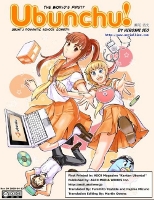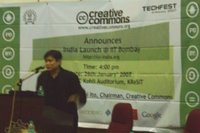
Bloggers and the FTC
Sometimes it is hard to distinguish between a genuine user experience and a paid advertisement when reading product reviews on the Net. Often, there is no clear way to indicate to a reader whether the review is paid-for or is independent. I think blog posts could use a set of standardized symbols to indicate endorsed content. For example, the Creative Commons could develop a list of symbols for open content to indicate symbols for independent opinion, paid-for endorsements, testimonials, advertisements, etc.
Today, the Federal Trade Commission (FTC) has issued updated guidelines governing the use of endorsements and testimonials in advertising. The guidelines now clearly state that “the post of a blogger who receives cash or in-kind payment to review a product is considered an endorsement. Thus, bloggers who make an endorsement must disclose the material connections they share with the seller of the product or service.” These guidelines are effective as of December 1, 2009 and fines for not declaring conflicts of interest range up to $11,000 for a violation.
Hopefully, the new FTC guidelines will make online blogging a little more transparent. They will certainly spur bloggers to be more conscientious and open about their financial relationships. Disclosure will make it easier for a reader or consumer to avoid false or misleading claims and to find the best reviews for their needs.

 Joichi Ito (chairman of Creative Commons) and Catharina Maracke (international legal advisor for Creative Commons) led the inauguration. Joi was awesome. He talked about his interaction with media companies and governments who are on the DRM bandwagon and how technologies including open source software were key in a paradigm shift towards more choice for creators and consumers of music, movies, and knowledge. Dr. Phatak expressed his interest in promoting the CC licenses for content. He felt these licenses are a better fit for knowledge than some software oriented licenses.
Joichi Ito (chairman of Creative Commons) and Catharina Maracke (international legal advisor for Creative Commons) led the inauguration. Joi was awesome. He talked about his interaction with media companies and governments who are on the DRM bandwagon and how technologies including open source software were key in a paradigm shift towards more choice for creators and consumers of music, movies, and knowledge. Dr. Phatak expressed his interest in promoting the CC licenses for content. He felt these licenses are a better fit for knowledge than some software oriented licenses.